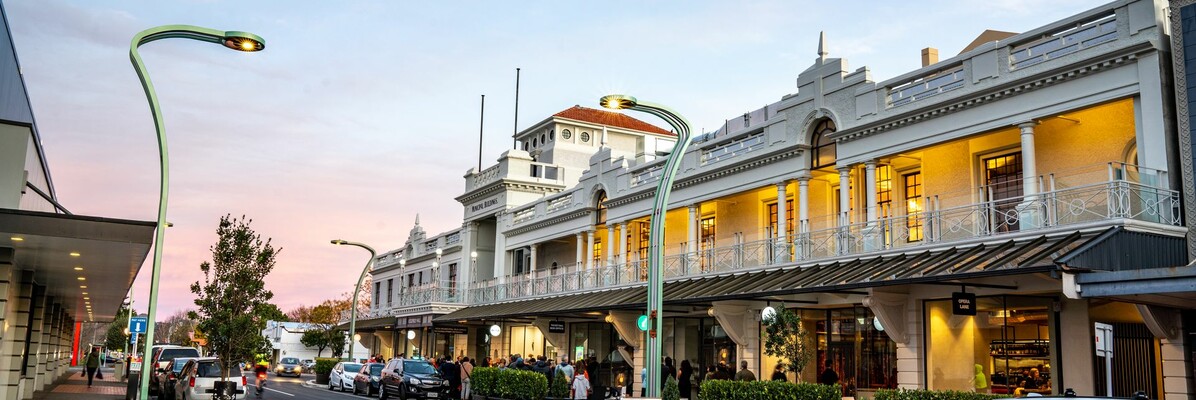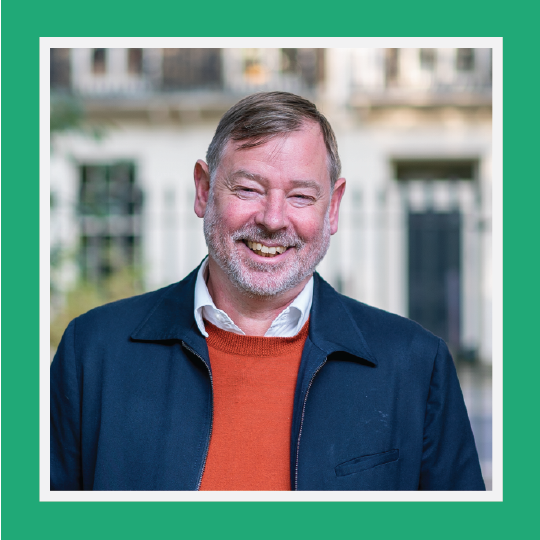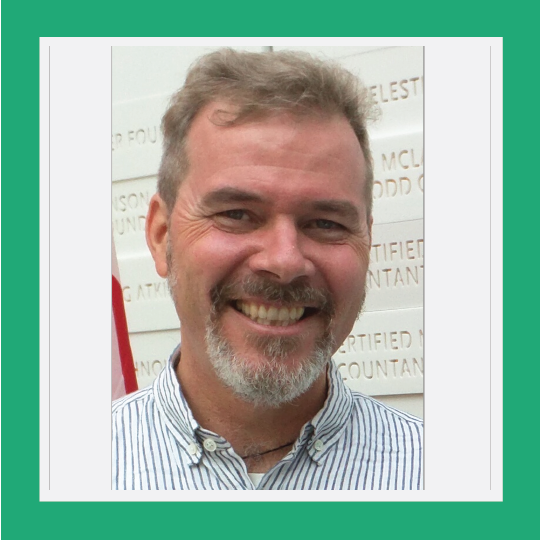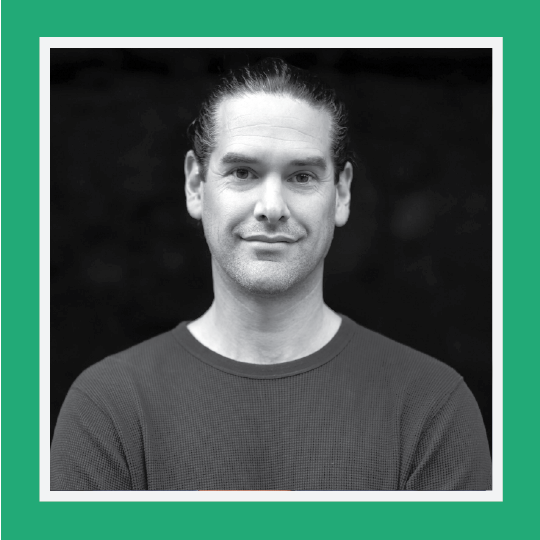
Speakers
Meet the speakers
The Wānanga Creative Panel is excited to share our speakers for 2025. This will be an engaging and participatory programme of content focused on high level learning and actionable takeaways.
INTERNATIONAL SPEAKERS
Tim Waterman

Tim Waterman is Professor of Landscape Theory and Inter-Programme Collaboration Director at the Bartlett School of Architecture, UCL. His research addresses imaginaries: moral, political, social, ecological, radical, and utopian. This forms the basis for explorations of power and democracy and their shaping of public space and public life, taste and manners, and foodways in community and civic life and landscape. He is an advisor to the Centre for Landscape Democracy of the Landscape and Spatial Planning Institute at NMBU in Norway, and was recently Chair of the Landscape Research Group and a Non-Executive Director of the digital arts collective Furtherfield. He is the author of The Landscape of Utopia: Writings on Everyday Life, Taste, Democracy, and Design and editor of Landscape Citizenships with Ed Wall and Jane Wolff, Landscape and Agency: Critical Essays with Ed Wall, and the Routledge Handbook of Landscape and Food with Joshua Zeunert. His writing has appeared in a variety of journals including the Journal of Architecture, Garden Design Journal, Utopian Studies, and Landscape Architecture Magazine.
Nick Rose

Nick has been the Executive Director of Sustain since its establishment in January 2016. With a background in law and community development, Nick brings nearly two decades of working at the grassroots and institutional level in several Australian states in urban agriculture, food sovereignty and sustainable food systems. He is the editor of "Fair Food: Stories From a Movement Changing The World (2015)" and the co-editor of "Reclaiming The Urban Commons: The Past, Present and Future of Food Growing in Australian Towns And Cities (2018)." Nick was a Partner Investigator in the Australian Research Council Discovery Project, Strengthening Food Systems Governance at the Local Level (2019-2022). Nick is also a lecturer in food systems, food policy and governance and food movements for William Angliss Institute in their Bachelor of Food Studies.
Joshua Zeunert

Dr Joshua Zeunert is a Scientia Associate Professor at UNSW in Sydney in the Faculty of Art, Design and Architecture. Motivated by a deep care for the more-than-human world, his multi-modal practice explores the dynamics of human activities, landscape impacts, and environmental change over time. Joshua has published four award-winning books including Landscape Architecture and Environmental Sustainability (Bloomsbury, 2017), the Routledge Handbook of Landscape and Food (2018) and Sydney’s Food Landscapes (2025). He has taught in thirteen academic programs at five universities, encompassing over 50 unique courses. Josh has exhibited and curated, including at the Venice Biennial, at Sydney’s Powerhouse Museum and Australian arts icon Bundanon. He has won a range of awards, grants and fellowships in professional practice and academia including the 2024 DDCA Distinguished Creative Researcher Award. His Food | Landscapes Australia web archive has received five international awards and been accessed by users in 110 countries.
LOCAL SPEAKERS (alphabetical)
Monica Bainbridge

Kaihoahoa Whenua | Landscape Architect / Kaiarataki Matua | Senior Professional - Boffa Miskell
My experience and passions in my role allow me to sit at the crossroads of design and the natural environment. A wide variety of projects has allowed me to sharpen my knowledge in residential development projects, light industrial development, stream restoration, aged care, and resort design. I have developed a skill range which expands from conceptual design to construction documentation with expertise in planting design.
I enjoy seeing through a concept to fruition which has demonstrated creative thinking and multi-disciplinary collaboration, ultimately enriching the environment and fostering stronger relationships.
I'm looking forward to expanding the diversity and scale of my project experience, particularly towards the enhancement of better environmental outcomes and climate resilience.
To’osavili Nigel Bickle

Chief Executive of Hastings District Council
Nigel describes himself as a “boy from Porirua” and is certainly proud of his roots. He started his working life as a 20-year-old, processing benefit applications in the local welfare office.
He worked in the public sector for 30 years including eight as Deputy Chief Executive of Immigration. Other previous roles include Acting Chief Executive of the Department of Labour and Acting Chief Executive of the Department of Building and Housing. Nigel was the head of the Government’s Provincial Development Unit, which managed the Provincial Growth Fund. Nigel took up the role as Chief Executive of the Hastings District Council in February 2019.
Shannon Davis

Senior Lecturer Landscape Planning, School of Landscape Architecture – Te Whare Wānaka o Aoraki Lincoln University
I specialise in Urban Agriculture, Food Landscapes and Landscape Planning and Assessment. I teach both undergraduate and postgraduate courses in planning and design, and have supervise Masters and PhD student research. I also work within the Centre of Excellence: Designing Future Productive Landscapes, leading the research theme Future Foodscapes for Health. My current research focuses on landscape planning for urban food security, Healthscape design, and the spatial connection of food landscapes within, and at the edge of urban settlements. I am passionate about exploring spatial planning opportunities for the re-integration of food landscapes back into the places New Zealanders live.
Sarah Flynn

Kaimātai Hauropi | Ecologist / Pouwhiri Matua | Senior Principal - Boffa Miskell
I am a botanist and plant ecologist with over two decades' experience in ecological consultancy. I have undertaken a wide range of ecology and biodiversity-related projects throughout New Zealand, including the provision of technical, strategic and policy advice, research, environmental effects assessments and project management.
Rachel Hill

Rachel Hill is a Senior Landscape Architect at WSP in Nelson, New Zealand. Her passion for the intersection of food and community landscapes began during her time as an American Peace Corps volunteer in Burkina Faso, where she observed the inseparable link between community structure and how food is produced, processed, sold and consumed.
Rachel's academic journey further deepened her expertise in food systems and community planning. She completed her MLA thesis in Yuma, Arizona, known as "the lettuce capital of the US," and pursued a Fulbright Fellowship on the island of Vis, Croatia, where she studied the impact of socialism and tourism on the island's ancient viticultural heritage. Additionally, she worked on the “Food Urbanism Initiative”, through a Swiss Science Foundation Grant in Switzerland.
Rachel specializes in spatial planning that prioritizes community and ecological values. She employs a local, ecologically-rooted, human-centered, and culturally-based approach to analysis, engagement, design, and outcomes. Her work is dedicated to fostering resilient and sustainable communities through thoughtful landscape architecture.
Gary Marshall

Gary is an award winning registered landscape architect, permaculture designer and educator with over 18 years of experience. Prior to co-founding Resilio Studio in 2014, Gary was design manager at two of New Zealand’s leading practices.
Gary has worked with public and private sector clients as a designer and educator in the fields of landscape architecture, ecological design and green infrastructure, spatial and environmental planning, transport planning, urban design and master planning, adaptive and tactical urbanism, place making, public realm design, productive landscapes, design thinking, social innovation, sustainability and resilience. Gary has been extensively involved in the design and delivery of public engagement and collaborative design processes with mana whenua and a wide range of public and private organisations throughout Auckland and the North Island.
Morgan Maw

Morgan Maw is the founder of Boring Oat Milk, New Zealand’s leading plant milk. Morgan has been working with oats since 2013, drawn to their nutritional value and sustainable potential. Her mission is to create high-quality products that not only satisfy consumer demand but also support a diversified farming landscape in Aotearoa.
With a deep understanding of the power of brand, Morgan has built Boring into a household name synonymous with simplicity, sustainability, and radical transparency. Beyond her role as founder, she is also the Head of Brand at Apollo Foods, where she leads the marketing strategies for Boring and re-freshed juice brand, Picky. Through her work, Morgan continues to champion innovation and sustainability in the food and beverage industry, making a lasting impact both locally and internationally.
Te Kahautu Maxwell

Te Kahautu was born and raised in Ōpōtiki in the northern eastern Bay of Plenty and belongs primarily to the Te Whakatōhea iwi, he has whakapapa affiliations to Ngāi Tai, Ngāti Awa, Te Whānau a Apanui, Ngāti Porou, Tūhoe, and Ngāti Maniapoto. He is a Professor at the University of Waikato, where he graduated with a Doctorate in Philosophy. Te Kahautu is an Adjunct Professor at Lincoln University where he contributes to research within Designing Future Productive Landscapes Centre of Excellence. He is a board member of Te Tāwharau o Te Whakatōhea (PSGE) and is a Director on the commercial company Whakatōhea Ōpōtiki Mussels Limited. Te Kahautu is the Chair of the Hāhi Ringatū o Aotearoa. His expertise in mātauranga Māori is sought out both nationally and internationally.
Daniel McEwan

Daniel McEwan has been a practicing landscape architect since graduating from Unitec in 2012 coming from a previous career in Film and video production.
For the previous 5 years Daniel lead the landscape team at BOON Limited working closely with the directors on a range of large scale cultural, community & private developments. Prior to relocating to his home region of Taranaki, Daniel worked for ‘Local Landscape Architecture Collective’ in Te Whanganui-a-Tara/Wellington, helped establish Creospace a dedicated playspace design company based in Oamaru and established and ran Stryde landscapes a design/build division of Stryde Projects in Tāmaki Makaurau.
Daniel has journeyed with several co-housing communities and his interests lie in understanding and striving for holistic community oriented developments that challenge the standard modus operandi New Zealands urban and regional centres struggle to deviate from and believes that a key component to this is the ongoing bi-cultural journey in learning what becoming true treaty partners affords our lived environments.
Richard Morris

Dr Richard Morris holds a PhD in Agricultural Science from Lincoln University. He brings over 30 years of professional experience as a practising architect, with a portfolio spanning Europe, Asia, Australia, and New Zealand. His work also includes community-based projects in Myanmar and service as a construction manager with Médecins Sans Frontières in Afghanistan. Dr Morris is currently a Postdoctoral Fellow at Lincoln University’s Designing Future Productive Landscapes Centre of Excellence. His research explores the integration of Western science and mātauranga Māori in climate adaptation and Nature-based Solutions projects. This work runs in parallel with the development of the GIS-based ESMAX model and interdisciplinary investigations into H. T. Odum’s theories on systems ecology.
Judge Laurie Newhook

Judge Laurie Newhook was head of the New Zealand Environment Court from August 2011 until his retirement in July 2020, and a Judge of the Court from 2001. Since 2020 he has held a warrant as an Alternate Environment Judge.
Prior to being appointed to the Court, he was counsel and had over thirty years of advocacy experience to that point, with particular emphasis on environmental matters, land, property, and maritime laws.
Judge Newhook has presented at many national and international conferences on the themes of environmental adjudication, access to environmental justice, and the use of technology in adjudicative settings. He has also written multiple papers on the subjects.
Mel Robinson

Mel is a NZILA Registered Landscape Architect, joining our DGSE Landscape Team as an Associate Landscape Architect with 17 years of experience in the industry. With Mel’s particular focus on Biophilic Design, Sustainability, and Green Tech, having led the design of over 1000m² of green walls on Westfield Newmarket and a new Sustainability Project at Sylvia Park seeking to close the waste loop, DGSE strives to advance our sustainability and landscape practice.
Charles Ropitini

Charles works for Heretaunga Hastings District Council as Pou Ahurea Principal Advisor for Relationships, Responsiveness and Heritage. With a broad and diverse portfolio, the key focus for Charles is implementing co-design methodologies and processes for working effectively with mana whenua. Charles works closely with Council’s parks & reserves teams for the design of public spaces and landscapes, and with Council’s water engineers for the design of infrastructure. A driver for Charles is to foster good working relationships between Council Officers, Consultants and Mana Whenua to achieve great co-design outcomes.
Cameron Taylor

Cameron Taylor is a fourth-generation orchardist and the Export Manager for Taylor Corporation, located in the Hawkes Bay. The company is a local, family owned, fully integrated business, with 400 hectares of apples, coolstores and packhouse.
Cameron has been involved in horticulture his whole life and understands orcharding from the ground up. As the Export Manager, he has a focus on market trends and new ideas to ensure the New Zealand apple industry is able to thrive on the international stage.
Taylor Corporation was hit particularly hard by Cyclone Gabrielle, having completed only 3 days of packing for the season. The packhouse, coolstores, orchards and RSE accommodation were all severely damaged and inundated with silt and debris. Despite this, the Taylor’s first priority was their community, using their company helicopter to rescue people across the region – many of whom were growers themselves. The follow weeks were focussed on clean up and advocating for the horticulture industry to receive support. With the packhouse back operational and new trees planted where entire orchards were destroyed, Cameron remains a strong supporter of the industry and Hawke’s Bay as a whole.
Renee Taylor

Renee Taylor is the founder of Salt Aotearoa, an inspiring freediving, spearfishing, and storytelling organisation dedicated to connecting wāhine (women) to themselves, to each other, and to the moana/ocean. A certified freediving instructor, Renee and her team passionately teach how to explore the ocean, how to use the concepts of freediving to support hauora/wellness, while fostering a deep respect for the safe, subsistence-based gathering of kaimoana/seafood. Now a proud māmā this work has taken on a whole new purpose, it's also for our next generation of kaitiaki.
Beyond her work with Salt Aotearoa, Renee serves as the director and lead clinician at Swallow and Speech Therapy Consultants, a private practice specialising in swallowing disorders. With over a decade of experience in healthcare, she is an advocate for systemic change in aged care settings, striving to ensure seniors can "dine with dignity."
Renee’s multidisciplinary expertise and advocacy extend beyond her professional roles, blending her background in speech-language therapy with her passion for community empowerment. Her work reflects a balance between ocean conservation, community well-being, and creating meaningful connections to the natural world.
Ngahiwi Tomoana

Ngahiwi Tomoana is a prominent Māori leader of Ngāti Kahungunu (specifically Ngāti Hawea and Ngāti Hori) and Samoan descent, with a lifelong commitment to hapū and iwi development. He served as the longest-serving Chair of Ngāti Kahungunu, holding that position for 26 years on the iwi's Board, during which he significantly contributed to the iwi’s growth and strategic direction.
Ngahiwi has played a vital role in economic development initiatives through his leadership of Te Pou Tahua, an Iwi Chairs Group focused on international trade and economic progress, within the broader National Iwi Chairs Forum. Although he no longer serves as an iwi Chair, he continues as the mandated lead for trade and economic development on behalf of the Forum and is the visionary behind Te Aratini—a platform emphasizing the importance of Māori culture in commerce, community, and conservation.
He holds numerous strategic roles, including Kaihautū of Te Aratini, Co-Chair of Te Hurumanu (a partnership with the Ministry of Foreign Affairs & Trade), member of the NZ Police Māori Focus Forum, and participant in initiatives such as Wai 262 and Te Wānanga Whare Tapere o Takitimu. His governance experience extends to trusteeships and leadership roles in various Māori and community organizations, reflecting his broad influence and commitment.
Ngahiwi’s background also includes significant involvement in the seafood industry, notably as a former Director and Chair of Te Ohu Kaimoana Trust and Deputy Chair of Wai Māori Trust, underscoring his dedication to Māori economic interests.
A passionate advocate for Māori and indigenous rights, Ngahiwi actively represents indigenous perspectives internationally. On a personal level, he is a loving husband to Mere Tomoana, a father of six tamariki, and a grandfather to twenty-one grandchildren. His work across local, regional, national, and international spheres exemplifies his deep commitment to Māori wellbeing, culture, and development.
Peter Wilson

Pete is a Principal Marine and Water Quality Scientist at SLR Consulting based in the Waikato with over 12 years of experience in local government, consulting, and academia. He is experienced in resource management, ecological impact assessments, and designing, implementing, and reporting on monitoring programmes, including regional state of the environment programmes.
Pete is passionate about the sustainable use of ocean resources (the Blue Economy). He has conducted a number of ecological assessments to support new mussel farms around the Waikato, Auckland and Northland regions. This is where he most often crosses paths with landscape architects. He has also provided technical advice and assessments on the recent New Zealand King Salmon Blue Endeavour offshore salmon farm, the Pare Hauraki kingfish farm in the Coromandel, and other upcoming finfish farms with Sanford.
He routinely provides technical advice to a broad range of audiences, including councillors, policy writers, resource consent staff, district councils, district health boards, community boards and the general public. One of Pete’s strengths is communicating technical information to non-technical audiences. Pete is the current President of the New Zealand Marine Science Association and is a Certified Environmental Practitioner under the Environment Institute of Australia and New Zealand scheme.